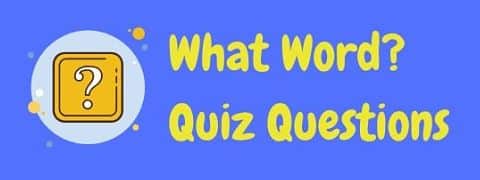Предлоги before и after мы начинаем изучать с самых первых уроков английского. И хотя они противоположны по значению, всё же у них больше общего, чем различий. Интересно? А что, если я скажу, что before и after могут быть не только предлогами? Давайте вместе разбираться с этими словами в этой статье.
Содержание:
I. Употребление BEFORE
II. Употребление AFTER
Употребление BEFORE
О предлоге before в английском языке мы вспоминаем в двух случаях: когда говорим о месте или о времени. Узнать о значениях предлога места before можно по ссылке, а сейчас давайте разберем значения времени.
Before в качестве предлога употребляется в значении «до» какого-то события. После before в этом случае ставится существительное либо герундий. (Герундий – это особая форма глагола с окончанием -ing, которая соединяет в себе черты существительного и глагола. Например, painting – «рисование».) Посмотрим примеры:
You should always wash your hands before lunch.
Ты всегда должен мыть руки перед обедом.
Before leaving he drank a glass of wine.
Перед уходом он выпил стакан вина.
Полина Червова, основатель школы WillSpeak
«Before также может быть союзом. В этом случае значение «до» сохраняется, но после before идет целая конструкция «подлежащее + сказуемое». Например:
It was two hours before the police arrived.
Прошло 2 часа до того, как приехала полиция.
Before может также выступать в качестве наречия. В этом случае он будет переводиться как «раньше», и после него мы ничего не ставим.
He said he had never done this before.
Он сказал, что никогда не делал этого раньше.
I feel as though I’ve been there before.
Я чувствую, как будто я был там раньше.
В английских предложениях перед словом before вы нередко встретите такие наречия, как just «только что», immediately «немедленно», shortly «незадолго», long «задолго», и выражения со словами days «дни», weeks «недели», month «месяцы», years «года».
We got home just before the storm started.
Мы вернулись домой как раз перед началом шторма.
I got this dress in days before the sale.
Я купила это платье за несколько дней до распродажи.
Вы также можете встретить интересные идиомы со словом before. Я приведу в качестве примера несколько из них.
before the Flood – давным-давно, «до Потопа»
before you know it – очень скоро, «ты и глазом не моргнешь», «оглянуться не успеешь»
It happened before the Flood.
Это произошло давным-давно.
I will finish this project before you know it.
Я закончу этот проект так скоро, ты и глазом не моргнешь.
Назад к содержанию
Употребление AFTER
Как я уже упомянула ранее, слова before и after во многом схожи, но различаются значением. Предлог after переводится «после», и мы также ставим его перед существительным и герундием.
Let’s go for a walk after lunch.
Пойдем прогуляемся после обеда.
We had coffee break after meeting.
После встречи мы сели выпить кофе.
Обратите внимание, что предлог after может встретиться и в других значениях – «в стиле, по», «в честь» кого-то, чего-то.
Look at this painting after Tititan.
Посмотри на эту картину в стиле Тициана.
We were at the concert after Mozart.
Мы были на концерте, поставленному по произведениям Моцарта.
She was named Leticia after her grandmother.
Ее назвали Летицией в честь ее бабушки.
Как и before, союз after употребляется перед конструкцией «подлежащее + сказуемое».
She went to the hospital immediately after she left you.
Она пошла в больницу сразу после того, как ушла от тебя.
Распространенное выражение «After you!» означает «Только после вас!»
Наречие after – это самостоятельная часть речи, после нее мы ничего не ставим.
Mary got here at midday and John arrived soon after.
Мэри приехала сюда в полдень, и вскоре после этого появился Джон.
Let’s feed the dogs first and have our dinner after.
Давай сначала покормим собак, а потом поужинаем сами.
Со словом after вы неоднократно встретите устойчивые выражения, которые нужно запомнить.
be after somebody / something – охотиться, преследовать, искать кого-то / что-то
after all – в конце концов, ведь
The police are after them.
Полиция преследует его.
Of course, I love him! After all, he’s my brother.
Конечно, я люблю его! В конце концов, он мой брат.
В английском языке есть также несколько фразовых глаголов с этим словом. Например:
take after someone – быть похожим на кого-то
run after something / somebody – стараться достичь чего-либо, гнаться за кем-то или чем-то
run after somebody – пытаться начать романтические отношения с кем-либо, ухлестывать
look after somebody / something – заботиться о ком-то, о чем-то
She has spent her life running after happiness.
Она провела свою жизнь в погоне за счастьем.
Don’t worry about Charlie – he can look after himself.
Не беспокойся о Чарли – он может позаботиться о себе.
Назад к содержанию
А вы заметили сходство между before и after? Надеюсь, это поможет вам быстрее запомнить их значения.
В своих статьях я стараюсь подробно рассказать вам обо всех значениях самых распространенных предлогов английского языка. Но одно дело знать теорию, и совсем другое – применять эти знания на практике. На моем комплексном курсе английского Will Speak нет скучных лекций. Студенты сразу строят предложения с изученными словами, поэтому запоминают материал намного быстрее. Вы можете присоединиться к нам прямо сейчас!
Ваша Полина Червова,
основатель школы WillSpeak
REVISED: This is a grammar question, but it is a question for generative grammar because it requires the Determiner Phrase distinction of X-bar theory in order to understand what is really different about each of the sentences. There is a noun-modifier in each of the phrases. The word order determines which word is the determiner+noun-modifier and which one is the noun-phrase noun. To the extent that one or the other succeeds or fails is a function of which makes a more sensible determiner for the other.
1A 1B DP: The user The "johnsmith" NP: "johnsmith" user
VP: "has been registered." DP: [hey] ;) NP: [you] VP: Go PP: to
2A 2B DP: the tab the "userprofile" NP: "userprofile." tab.
In the first case «the johnsmith» does not function as a good determiner for user. The «johnsmith» transaction history. The «johnsmith» hairstyle. The «johnsmith» Presidential Library. ok not that one. But «the user» is an excellent determiner: The user name. The user profile. The user agreement. The user him/herself. Etc.
In the second case «the tab» is a not a good determiner for «userprofile.» At all. Except by counterexample: «The tab layout» «The tab feature» It is for introducing things that tabs have. Not the other way around. Whereas «the userprofile» is an excellent determiner in this context: «the userprofile page» «the userprofile settings» «the userprofile object/property/servlet.»
This is not a grammar question. Both of the sentences are perfectly grammatical. But they have different meanings. So the reason that one sentence sounds correct and the other does not is that the subtle difference in meaning leads to one sentence which comports with your understanding of what has happened and another which does not.
The user «John Smith» has been registered.
The «John Smith» user has been registered.
Their grammar and thus their meaning is different which I know immediately upon reading them as you do. I can only explain why if I try to translate them into Latin or Russian where there is full suite of case markers.
The user is subject in both sentences. Subject = Nominative. Easy.
But the case marker for «John Smith» is not the same for both of these sentences. In the first sentence, In Russian, «John Smith» stays in the Nominative case. The one and only user «John Smith» is the subject of the sentence. In Latin, I want to use the Vocative. Which is still just subject case, used for direct address. That may not be correct. It might just be nominative. I was often accused of over using the Vocative case. (Which exists in English only poetically as the particle «O..» «O judgment, thou art fled to brutish beasts.» Judgement is clearly the subject of that sentence but is also being spoken to, sort of. The user «John Smith» has been registered. juror number 2 has been released. I understood this form of specifying by name as the criteria and application for Vocative. Or just Nominative, simple subject case
In the second sentence, «John Smith» would be in the genitive case. Because «John Smith» is the type of user or a quality of the user. The user belongs to the class of users known as the «John Smith» users. The user is an instance, just one example of a «John Smith» user. Well that is not right at all.
The user has been registered. Is a simply declarative sentence which is just a little too vague. Which user? Why, the user «John Smith» if you must know.
A user has been registered. A user? What kind of user? A «John Smith» user of course. Which user is it? The «John Smith» user (?!) The only reason The «John Smith» user seems like it unambiguous is because we have separate understanding of «John Smith» as the name of one person. But user names can be anything.
The user «blue toothpaste» has been registered. The specific user with the name «blue toothpaste» has been registered. This is the meaning you intend.
The «blue toothpaste» user has been registered. The user of the so-called blue toothpaste has been registered. Oh no not another blue toothpaste user. This is not the meaning you intend.
The juror number 1 has been released. == The specific juror with the number 1 has been released.
The number 1 juror has been released. == The best juror has been released, Juror 6.
One of our favorite types of quiz question or riddle is where you have to come up with the word that can go before or after a list of words your given; a so-called what word quiz. They’re a great way to improve your thinking and vocabulary, which can only be a good thing!
And here’s a great example just for you! Put your vocabulary prowess to the test with this fun free word quiz; good luck!

1. What word can go after friend, flag and hard?
2. What word can go before case, tube and bed?
3. What word can go after money, hat and ice?
4. What word can go before line, wood and head?
5. What word can go after waste, news and wall?
6. What word can go before friendly, testing and interface?
7. What word can go after ear, hot and pot?
8. What word can go before collar, wash and board?
9. What word can go after door, time and main?
10. What word can go before fingers, hook and tank?
11. What word can go after bon, mis and gun?
12. What word can go before collar, days and tired?
13. What word can go after river, piggy and sand?
14. What word can go before bath, hat and opener?
15. What word can go after pipe, day and bad?
16. What word can go before struck, gazing and quality?
17. What word can go after pick, pole and battle?
18. What word can go before racer, wonder and band?
19. What word can go after hot, child and back?
20. What word can go before bullet, duck and band?
21. What word can go after flick, jack and pocket?
22. What word can go before egg, blood and manners?
23. What word can go after wheel, electric and high?
24. What word can go before street, flower and mounted?
25. What word can go after straw, con and ladies?
26. What word can go before foot, sandwich and soda?
27. What word can go after vicious, water and life?
28. What word can go before age, pack and cube?
29. What word can go after rocky, off and high?
30. What word can go before speed, switch and weight?
More Quizzes
If you enjoyed this what word quiz, be sure to check out the rest of LaffGaff for lots more fun free quizzes and riddles, such as these:
- Pop Music Quiz
- Really Hard Riddles
- Science Quiz
- State Capitals Quiz
- What Am I Riddles
Оглавление —> Все о предлогах —> Части речи —> Слова содержательные и функциональные —> Терминология —> Сопоставление английского и родного языков
Рассмотрим еще три предлога времени AFTER, BEFORE и THROUGH, которые мы уже разбирали , как предлоги направления. Но время тесно связано с пространством, поэтому эти предлоги имеют двойственный характер.
Смысл предлога AFTER = находиться ПОЗАДИ или ПОСЛЕ чего-либо.
Если AFTER — предлог времени, то он указывает на последовательность событий, явлений, действий или указывает на промежуток времени, ПОСЛЕ которого произошло или произойдет событие. Любое событие или действие связано со временем, а точнее с мерой времени, периодом времени, в течение которого происходит действие или событие. Предлог времени AFTER переводится — ПОСЛЕ, СПУСТЯ, ЗА, ПО ПРОШЕСТВИИ и т.д.
Время и пространство взаимосвязаны, и этот факт отражается в английском языке. Поэтому предлог времени AFTER имеет двойственный характер и является также предлогом направления и места. Если AFTER — предлог места и направления, то он указывает на местонахождение позади какого-либо предмета или движение вдогонку.
Несколько примеров:
He returned home AFTER 10 o’clock. = ПОСЛЕ десяти он вернулся домой.
We usually go to the library AFTER classes. = ПОСЛЕ занятий мы обычно идем в библиотеку.
I am going to speak to him AFTER dinner. = Я намереваюсь поговорить с ним ПОСЛЕ обеда.
They managed to do it AFTER ten years. = Они сумели сделать это СПУСТЯ десять лет.
Where do you usually go AFTER work? = Куда вы обычно ходите ПОСЛЕ работы?
He arrived AFTER me. = Он приехал ПОСЛЕ меня.
The children never go out AFTER dark. = Дети никогда не выходят гулять ПОСЛЕ наступления темноты.
Напишу несколько словосочетаний с предлогом времени AFTER.
day AFTER day = день за днем;
week AFTER week = неделя за неделей;
year AFTER year = год за годом;
the day AFTER tomorrow = послезавтра;
long AFTER = спустя долгое время;
not long AFTER = немного спустя, спустя недолгое время;
Смысл предлога BEFORE — находиться ВПЕРЕДИ чего либо.
Если BEFORE предлог времени, то он указывает на предшествование какому-либо событию, явлению, действию, а также моменту или периоду времени. Речь идет о последовательности, как и в случае с предлогом времени AFTER, только событие произошло или произойдет ДО определенного момента ( точки времени) или ДО какого-либо события. Предлог BEFORE является антонимом предлога AFTER и переводится, как ДО, ПЕРЕД, РАНЬШЕ.
Если BEFORE — предлог места и направления , то он указывает на местонахождение перед каким-либо предметом или движение перед предметом.
Несколько примеров:
We usually speak English BEFORE classes. = Мы обычно говорим по-английски ПЕРЕД занятиями.
He got there BEFORE me. = Он добрался туда РАНЬШЕ меня.
It happened BEFORE 1937. = Это случилось ПЕРЕД 1937 годом.
Wash your hands BEFORE dinner. = Вымой руки ПЕРЕД обедом.
I shall translate this article BEFORE Friday. = Я переведу эту статью ДО пятницы.
Напишу несколько словосочетаний с предлогом времени
the day BEFORE yesterday = позавчера;
the day BEFORE = накануне;
BEFORE long = вскоре, скоро;
BEFORE now = раньше, до сих пор;
long BEFORE = задолго до;
Смысл предлога THROUGH — проходить СКВОЗЬ, ЧЕРЕЗ чего-либо.
Если THROUGH — предлог времени, то он указывает на период, отрезок времени в течение которого происходит событие, явление или действие и обозначает этот период ОТ его начала и ДО конца. Переводится, как — В ТЕЧЕНИЕ, В ПРОДОЛЖЕНИЕ, ВКЛЮЧИТЕЛЬНО;
Если THROUGH — предлог направления, то он указывает на прохождение движущего объекта СКВОЗЬ, ЧЕРЕЗ какое-либо “препятствие”.
Несколько примеров:
He won’t live THROUGH the night. = Он не переживет эту ночь. Он не доживет ДО утра.
The children are too young to sit THROUGH a long concert. = Дети слишком маленькие, чтобы просидеть ДО конца весь концерт.
He was waiting THROUGH ten long years. = Он ждал В ТЕЧЕНИЕ долгих десяти лет.
The conference will be held September 5 THROUGH 10 October. = Конференция будет проходить с пятого сентября по десятое октября ВКЛЮЧИТЕЛЬНО.
Updated on October 26, 2020
The time expressions after, before and when are used to indicate when something happens in the past, present, or future. Each is a subordinating conjunction which introduces a dependent clause and can be used at the beginning or in the middle of a sentence.
- I went to school after I had finished my homework.
- She takes the train when she travels to London.
- Mary finished the report before she made the presentation.
or
- After we have discussed the issue, we can make a decision.
- When we get up, we take a shower.
- Before we left, we visited our friends in Seattle.
After, before and when introduce a full clause and require a subject and verb. Therefore, the time expressions after, before, and when introduce adverb clauses.
After
The action in the main clause occurs after what occurs in the time clause. Notice the use of tenses:
Future: What will happen after something occurs.
Time clause: present simple
Main clause: future
- We’ll discuss the plans after he gives the presentation.
- Jack is going to propose to Jane after they have dinner on Friday!
Present: What always happens after something else occurs.
Time clause: present simple
Main clause: present simple
- Alison checks her mail after she gets home.
- David plays golf after he mows the lawn on Saturdays.
Past: What happened after something (had) occurred.
Time clause: past simple or past perfect
Main clause: past simple
- They ordered 100 units after Tom (had) approved the estimate.
- Mary purchased a new car after she (had) researched all her options.
Before
The action in the main clause happens before the action described in the time clause. Notice the use of tenses:
Future: What will happen before something else occurs in the future.
Time clause: present simple
Main clause: future
- Before he completes the report, he will check all the facts.
- Jennifer will speak with Jack before she makes a decision.
Present: What happens before something else occurs on a regular basis.
Time clause: present simple
Main clause: present simple
- I take a shower before I go to work.
- Doug exercises every evening before he eats dinner.
Past: What (had) happened before something else occurred at a point of time in the past.
Time clause: past simple
Main clause: past simple or past perfect
- She had already eaten before he arrived for the meeting.
- They finished the discussion before he changed his mind.
When
The action in the main clause happens when something else occurs. Notice that «when» can indicate different times depending on the tenses used. However, «when» generally indicates that something happens after, as soon as, upon something else occurring. In other words, it happens just after something else occurs. Notice the use of tenses:
Future: What happens when something else occurs in the future.
Time clause: present simple
Main clause: future
- We’ll go out to lunch when he comes to visit me. (general time)
- Francis will give me a call when he gets the confirmation. (after in a general sense—it could be immediately, or later)
Present: What always happens when something else occurs.
Time clause: present simple
Main clause: present simple
- We discuss the bookkeeping when she comes every month.
- Susan plays golf when her friend Mary is in town.
Past: What happened when something else (had) occurred. The past tense of «when» can indicate that something happened regularly or one specific time in the past.
Time clause: past simple
Main clause: past simple
- She took the train to Pisa when he came to visit her in Italy. (once, or on a regular basis)
- They had a great time seeing the sights when they went to New York.
After, When, Before Quiz
Conjugate the verbs in brackets based on the time context in the sentences below.
1. She __________(take) the subway when she __________ (go) into town every week.
2. I __________ (prepare) dinner before my friend __________ (arrive) yesterday evening.
3. We __________ (go) out for drinks after we __________ (get) to the hotel next Tuesday.
5. Bob usually __________ (use) a bilingual dictionary when he __________ (read) a book in German.
7. She __________ (order) a hamburger when she __________ (go) to a restaurant with me last week.
Correct Use of the Time Expressions After, Before, and When
You got: % Correct.
Share Your Results
Correct Use of the Time Expressions After, Before, and When
You got: % Correct.
Share Your Results
Correct Use of the Time Expressions After, Before, and When
You got: % Correct.
Share Your Results




